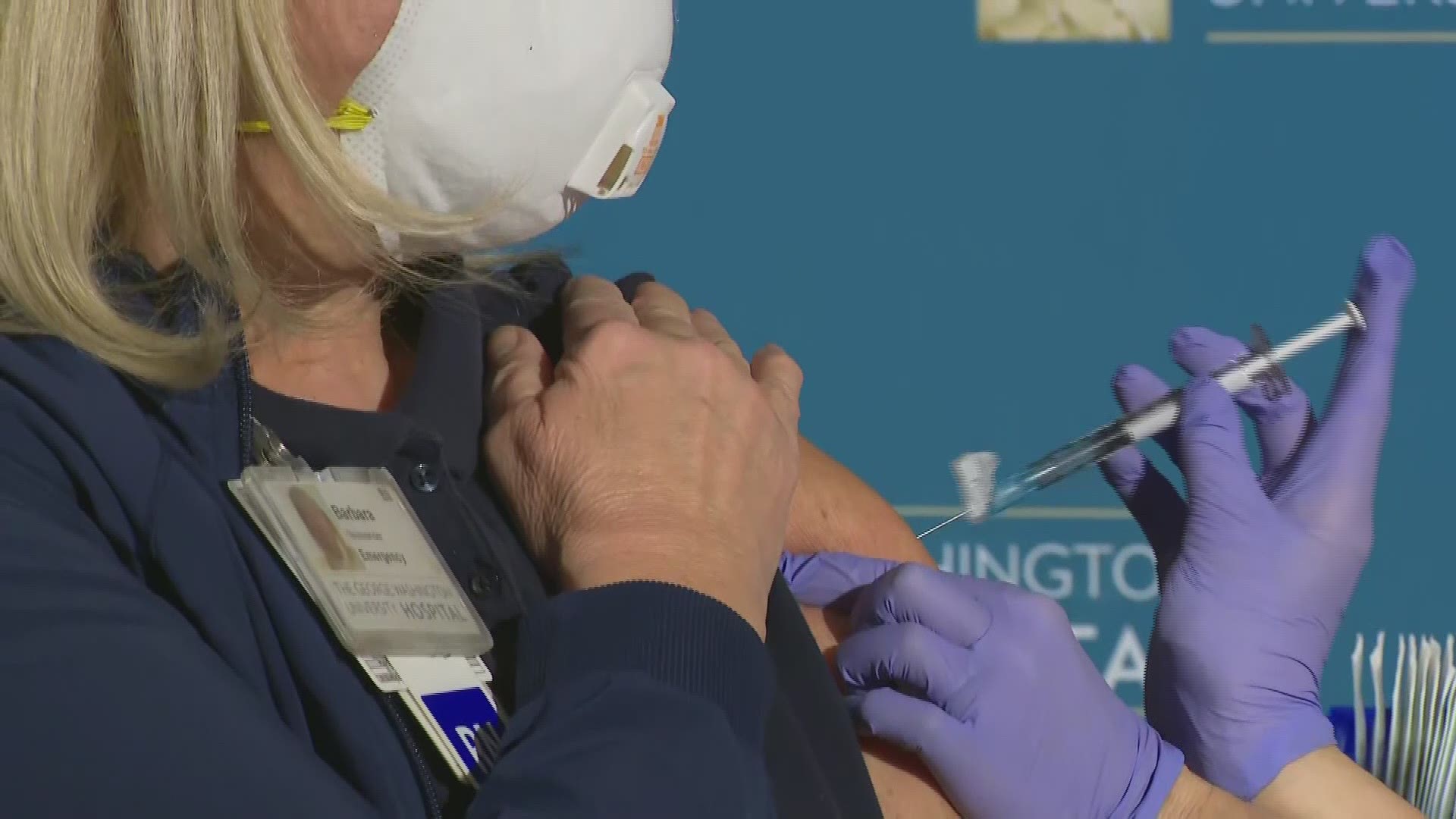WASHINGTON — Hundreds of millions of Americans have received at least one COVID-19 vaccine dose. As more and more people get closer to full immunity, the Verify team is breaking down how long it takes to get to that point.
QUESTION:
How long does it take to reach "full immunity" from COVID-19?
ANSWER:
- Pfizer-BioNTech: at least 35 days
- Moderna: at least 42 days
- Johnson & Johnson/Janssen: about 14 days
SOURCES:
- Food and Drug Administration (FDA)
- Centers for Disease Control and Prevention (CDC)
PROCESS:
Both Pfizer and Moderna's vaccines require a certain amount of time to wait between receiving the first and second dose. According to the FDA, for Pfizer that wait period is 21 days and for Moderna it is 28 days. Johnson & Johnson is only one dose, so there is no waiting period involved.
According to the CDC, about two weeks after your final dose (first for Johnson & Johnson, second for Pfizer and Moderna) you are considered "fully protected." At that point, the CDC says "you may be able to start doing some things you had stopped doing because of the pandemic."
Trials have shown each vaccine to have different but sufficiently high effectiveness at preventing severe disease caused by COVID-19. All three vaccines are virtually entirely effective at preventing hospitalization and death from the virus.
New CDC guidelines say that those who pass that two-week point can safely gather with other fully vaccinated individuals and skip quarantining after contact with someone who has COVID-19. Despite full immunity, experts still recommend wearing masks in public and around unvaccinated individuals.

